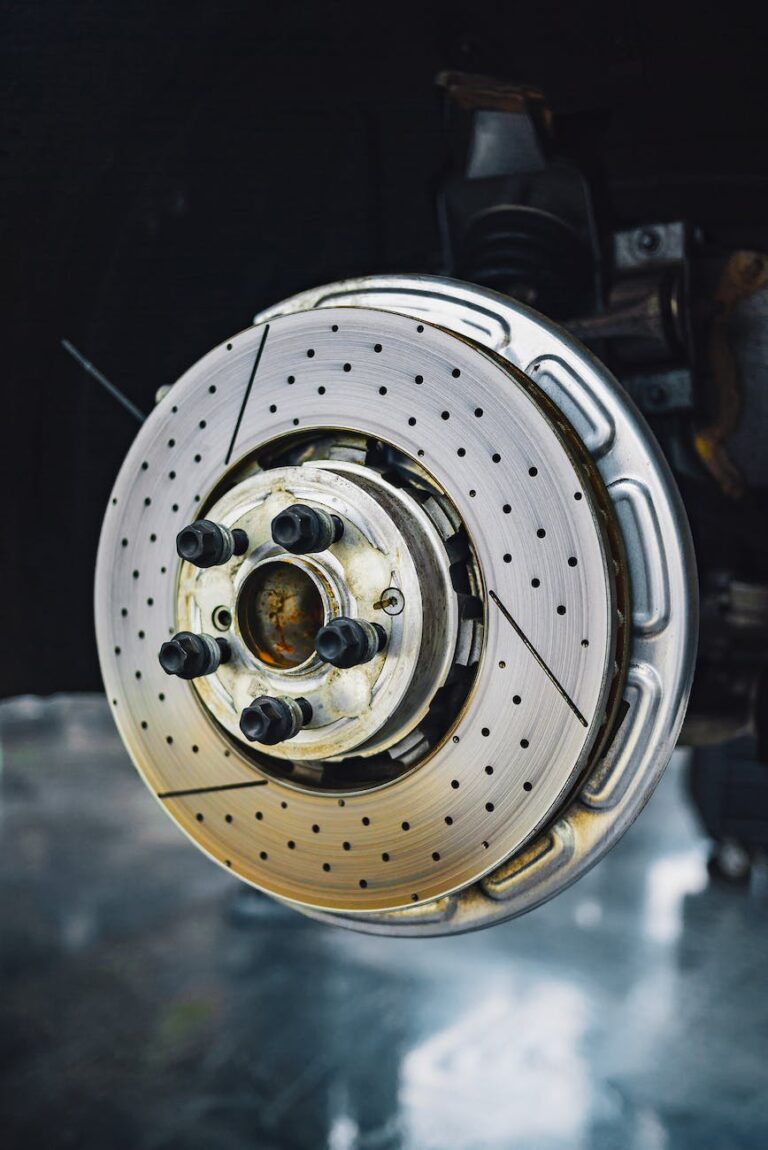Understanding Mercedes-Benz Oil Change Services
When it comes to maintaining the performance and longevity of your Mercedes-Benz, regular oil changes are of utmost importance. Neglecting this essential maintenance task can lead to engine damage, decreased fuel efficiency, and overall poor performance (MB White Plains). In this section, we will explore the importance of regular oil changes and the recommended oil change interval for your Mercedes-Benz.
Importance of Regular Oil Changes
Regular oil changes are crucial to keep your Mercedes-Benz running smoothly. The engine oil plays a vital role in lubricating the engine components, reducing friction, and preventing excessive wear. Over time, the oil can become contaminated with dirt, debris, and combustion byproducts, which can compromise its effectiveness in protecting the engine (Westchester Benz).
By adhering to the recommended oil change interval, you ensure that your engine is always supplied with fresh, clean oil. This helps to maintain proper lubrication, prevent overheating, and optimize the overall performance and reliability of your Mercedes-Benz. Regular oil changes also contribute to improved fuel efficiency, which can lead to long-term cost savings at the pump (MBSD.com).
Recommended Oil Change Interval
Mercedes-Benz recommends getting an oil change every 10,000 miles or once a year, whichever comes first (MBSD.com). However, it’s important to note that the oil change frequency may vary depending on factors such as driving conditions, climate, and the specific model of your Mercedes-Benz.
It’s always advisable to consult your vehicle’s owner’s manual or reach out to an authorized Mercedes-Benz service center for the most accurate information regarding the recommended oil change interval for your particular model.
By adhering to the recommended oil change interval, you help to ensure that your Mercedes-Benz engine remains properly lubricated and protected. This not only promotes optimal performance but also helps to extend the life of your engine.
In the next section, we will delve into choosing the right oil for your Mercedes-Benz, exploring the different types of oil available and the benefits of synthetic oil versus conventional oil.
Choosing the Right Oil for Your Mercedes-Benz
When it comes to maintaining the optimal performance and longevity of your Mercedes-Benz engine, choosing the right oil is crucial. Mercedes-Benz vehicles require a specific type of oil that is designed to meet the requirements of the engine and provide optimal performance and protection (MBSD.com). In this section, we will explore the different types of oil suitable for Mercedes-Benz vehicles and the difference between synthetic and conventional oil.
Types of Oil for Mercedes-Benz
Mercedes-Benz cars typically use synthetic oil, which provides better performance and longer service intervals (BenzWorld). Synthetic oil is specially formulated to meet the specific requirements of modern engines, including those found in Mercedes-Benz vehicles. It offers several advantages over non-synthetic, conventional oil.
Synthetic oil has a longer lifespan, which means you can go longer between oil changes. This can be beneficial in terms of convenience and cost savings. Additionally, synthetic oil performs better in extreme temperatures, both high and low, ensuring optimal engine lubrication and protection in a wide range of driving conditions. It also provides better lubrication for engine components, which can contribute to improved fuel efficiency and reduced engine wear.
Synthetic vs. Conventional Oil
The main difference between synthetic and conventional oil lies in their composition. Conventional oil is derived from crude oil and undergoes minimal processing, while synthetic oil is chemically engineered and refined to have specific properties.
Synthetic oil offers several advantages over conventional oil, including:
- Longevity: Synthetic oil lasts longer and can typically go for more miles before needing to be changed, resulting in fewer oil changes over time.
- Better Temperature Performance: Synthetic oil has a wider temperature range, providing excellent lubrication and protection in both hot and cold conditions.
- Enhanced Engine Protection: Synthetic oil offers better lubrication, reducing friction and wear on engine components, which can lead to improved longevity and performance.
- Improved Fuel Efficiency: The superior lubricating properties of synthetic oil can contribute to better fuel efficiency.
While synthetic oil is recommended for Mercedes-Benz vehicles, it’s important to follow the manufacturer’s specifications for your specific model. Using the recommended oil will ensure that your engine receives the optimal level of protection and performance.
When it’s time for an oil change for your Mercedes-Benz, it’s advisable to consult with a certified technician at an authorized service center. They will have the expertise and knowledge to recommend the appropriate oil for your vehicle, ensuring that it meets the necessary specifications.
By choosing the right oil for your Mercedes-Benz, such as synthetic oil, you can help maintain the performance and longevity of your engine. Regular oil changes using the recommended oil and filter are essential to keep your Mercedes-Benz running smoothly and efficiently.
The Oil Change Process for Mercedes-Benz
To maintain the performance and longevity of your Mercedes-Benz, regular oil changes are essential. Understanding the components and steps involved in an oil change service can help you ensure that this vital maintenance task is performed correctly. Let’s explore the oil change process for Mercedes-Benz vehicles.
Components of an Oil Change Service
An oil change service for a Mercedes-Benz typically includes the following components:
- Draining the Old Oil: The old oil is drained from the engine to remove any contaminants and debris that may have accumulated over time. This allows for fresh oil to be added during the oil change process.
- Replacing the Oil Filter: The oil filter plays a crucial role in removing impurities and particles from the engine oil. It should be replaced during every oil change to ensure effective filtration and maintain the health of the engine.
To find the right oil filter for your Mercedes-Benz, consult your vehicle’s owner’s manual or seek guidance from a certified technician at an authorized service center.
Steps Involved in an Oil Change
The process of changing oil in a Mercedes-Benz typically involves the following steps:
- Preparing the Vehicle: The technician will position the vehicle in the service area and ensure that it is securely placed on a lift or jack stands. This allows for easy access to the undercarriage and engine components.
- Draining the Old Oil: The technician will locate the oil drain plug, usually located on the bottom of the engine oil pan, and carefully remove it. This allows the old oil to drain out completely. It is crucial to properly dispose of the old oil according to local regulations.
- Removing and Replacing the Oil Filter: After draining the old oil, the technician will remove the old oil filter. The new oil filter is then installed, ensuring it is properly aligned and tightened to prevent oil leaks.
- Adding Fresh Oil: The technician will select the appropriate oil for your Mercedes-Benz, taking into consideration the manufacturer’s recommendations and specifications. The engine is then filled with the fresh oil, ensuring it reaches the correct level.
- Inspection and Quality Assurance: Once the oil change is complete, a thorough inspection of the vehicle is performed to identify any potential issues or areas that require attention. This helps ensure that your Mercedes-Benz is in optimal condition.
By following these steps and using the recommended oil and filter, you can help maintain the performance and reliability of your Mercedes-Benz.
Remember, for the best results and to maintain your vehicle’s warranty, it is recommended to have oil changes performed by certified technicians at authorized service centers. To find an authorized service center near you, check out our article on oil change near me.
Regular oil changes are a vital part of Mercedes-Benz maintenance, helping to protect your engine and maximize its performance. By staying diligent with your oil change intervals and following the proper process, you can enjoy many miles of smooth and reliable driving.
Benefits of Professional Oil Change Services
When it comes to maintaining the performance and longevity of your Mercedes-Benz, opting for professional oil change services provides several advantages. Let’s explore the benefits of entrusting certified technicians at authorized service centers with your oil change needs.
Certified Technicians and Authorized Service Centers
Mercedes-Benz recommends having the oil change service performed by certified technicians at authorized service centers to ensure quality and proper maintenance of the vehicle (MBSD.com). These technicians undergo rigorous training specific to Mercedes-Benz vehicles, equipping them with the knowledge and expertise to handle the intricacies of your car’s engine.
By choosing authorized service centers, you can have peace of mind knowing that your vehicle is in the hands of professionals who understand the unique requirements of Mercedes-Benz models. They have access to the latest diagnostic tools, resources, and technical information provided by the manufacturer, enabling them to deliver accurate and efficient oil change services.
Furthermore, authorized service centers use genuine Mercedes-Benz parts and products. This ensures that your vehicle receives the high-quality components it deserves, maintaining the warranty and ensuring proper functioning of the vehicle (CARiD). These authentic parts are specifically designed for your vehicle, guaranteeing optimal performance and compatibility.
Quality Assurance and Warranty Protection
One of the significant benefits of opting for professional oil change services is the assurance of quality. Certified technicians follow manufacturer-recommended procedures and specifications, adhering to strict standards set by Mercedes-Benz. This ensures that the oil change is performed correctly, minimizing the risk of engine damage, oil leaks, and other potential issues that may arise from improper DIY attempts (Driving.ca).
Additionally, professional oil change services often include a comprehensive inspection of your vehicle. Certified technicians can identify and address any underlying issues or potential concerns, helping you stay ahead of maintenance requirements and ensuring the overall health of your Mercedes-Benz. Regular inspections during oil changes can help catch problems early, potentially saving you from costly repairs down the line.
By choosing professional oil change services, you also safeguard your vehicle’s warranty. Using certified technicians and genuine Mercedes-Benz parts helps maintain the warranty coverage provided by the manufacturer. This can be crucial in the event of any unforeseen repairs or issues that may arise during the warranty period. By adhering to the manufacturer’s guidelines and recommendations, you can ensure that your warranty remains intact and your vehicle remains protected (Westchester Benz).
In summary, opting for professional oil change services for your Mercedes-Benz offers numerous benefits. Certified technicians at authorized service centers possess the expertise, training, and access to genuine parts necessary to perform oil changes accurately and efficiently. Their services provide quality assurance, comprehensive inspections, and help maintain the warranty of your vehicle. By entrusting your oil change needs to professionals, you can ensure that your Mercedes-Benz continues to perform at its best and remains in optimal condition for years to come.
DIY Oil Changes for Mercedes-Benz
For car owners who prefer a hands-on approach and have the necessary tools and knowledge, performing a DIY oil change can be a cost-effective option. However, it’s essential to weigh the pros and cons before deciding whether to tackle this task yourself.
Pros of DIY Oil Changes
- Cost Savings: DIY oil changes can save money, with potential savings ranging from $100 to $200 per year (Driving.ca). By avoiding labor costs associated with professional oil change services, you can keep more money in your pocket.
- Flexibility and Convenience: Performing a DIY oil change allows you to choose the time and place that suits you best. You can work at your own pace and avoid waiting in line at a service center.
- Knowledge and Control: When you perform an oil change yourself, you have complete control over the process. You can select the specific oil and oil filter that meet the manufacturer’s requirements and ensure that the job is done to your satisfaction.
Tools and Equipment Needed for DIY Oil Changes
To successfully perform a DIY oil change for your Mercedes-Benz, you will need the following tools and equipment:
| Tools and Equipment |
|---|
| Oil filter wrench |
| Oil drain pan |
| Jack or ramps for lifting the car |
| Socket set or wrench to remove the drain plug |
| Funnel for pouring new oil |
| Shop towels or rags |
| Safety gloves |
| Disposable gloves |
It’s important to note that different Mercedes-Benz models may have specific requirements, so consult your owner’s manual for any additional tools or equipment needed for your particular vehicle. Additionally, ensure that you have the correct oil filter and the recommended oil for your specific model.
While DIY oil changes can offer cost savings and a sense of accomplishment, it’s crucial to approach the task with caution. If performed incorrectly, DIY oil changes can lead to engine damage, oil leaks, and void the manufacturer’s warranty (Driving.ca). If you’re unsure about your mechanical abilities or lack the necessary tools, it may be best to leave the oil change to the professionals.
If you decide to proceed with a DIY oil change, follow the manufacturer’s guidelines, and use high-quality tools to ensure the job is done correctly. Properly dispose of the used oil and oil filter at a designated recycling center to minimize environmental impact.
Remember, if you prefer the expertise and assurance of a professional, there are numerous oil change services available, including express oil changes, which offer quick and convenient options for busy car owners.
Common Questions About Mercedes-Benz Oil Changes
When it comes to maintaining your Mercedes-Benz, understanding the frequency of oil changes and the importance of using the recommended oil and filter is crucial. In this section, we will address some common questions related to Mercedes-Benz oil changes.
Oil Change Frequency for Different Models
The recommended oil change interval for Mercedes-Benz vehicles can vary depending on the model and year. Generally, it is advised to follow the guidelines provided in your vehicle’s owner’s manual. However, as a general rule of thumb, Mercedes-Benz recommends an oil change every 10,000 miles or once a year, whichever comes first.
It’s worth noting that the oil change frequency may differ for certain models or specific driving conditions. For example, if you frequently engage in stop-and-go city driving or operate your vehicle in extreme temperatures, more frequent oil changes may be necessary to maintain optimal engine performance.
To determine the precise oil change interval for your Mercedes-Benz model, consult the owner’s manual or reach out to an authorized service center for guidance. They can provide you with accurate information tailored to your specific vehicle.
Importance of Using the Recommended Oil and Filter
Using the recommended oil and filter for your Mercedes-Benz is essential for ensuring optimal engine performance and longevity. Mercedes-Benz engines are designed to operate with specific types of oil that meet stringent manufacturer specifications.
Using the recommended oil helps to maintain proper lubrication, protect engine components from wear, and promote efficient performance. The recommended oil is formulated with additives that provide enhanced protection against deposits, sludge, and oxidation.
Additionally, using the correct oil filter is crucial for capturing contaminants and preventing them from circulating in the engine. Mercedes-Benz vehicles require filters that meet the manufacturer’s stringent requirements to ensure efficient filtration and protect engine components.
By using the recommended oil and filter, you ensure that your Mercedes-Benz operates at its best and maintains its performance and fuel efficiency. It also helps to preserve your vehicle’s warranty coverage, as using non-approved oils or filters may void warranty protection.
For peace of mind and to ensure the proper oil and filter are used, it is advisable to have your oil changes performed by certified technicians at authorized service centers. They have the expertise and access to the right oils and filters specifically designed for your Mercedes-Benz model.
Understanding the oil change frequency and the importance of using the recommended oil and filter will help you keep your Mercedes-Benz running smoothly and efficiently for years to come. If you have further questions or need assistance, reach out to your local authorized service center for expert advice and guidance.
Mercedes-Benz Oil Change Services: A Comprehensive Guide
To ensure optimal performance and longevity of your Mercedes-Benz engine, regular oil changes are essential. Mercedes-Benz offers two main oil change services: the A service and the B service.
A Service vs. B Service
The A service and B service are part of the Mercedes-Benz maintenance schedule. Both services involve replacing the synthetic motor oil and oil filter, checking and correcting tire inflation, and inspecting brake components for safety (Garden City Garage). However, there is a slight difference between the two.
The A service includes the essential components of the oil change, while the B service encompasses additional maintenance checks. One of the significant differences lies in the cabin dust/combination filter replacement, which is included in the B service but not in the A service. The cabin dust/combination filter helps maintain clean and fresh air inside the vehicle.
It’s important to follow the recommended service schedule outlined in your Mercedes-Benz owner’s manual to ensure that your vehicle receives the necessary maintenance at the appropriate intervals. This will help keep your engine running smoothly and prevent serious engine damage.
Additional Maintenance Checks and Replacements
In addition to the oil change, the B service includes a comprehensive inspection of various components in your Mercedes-Benz. Some of the additional maintenance checks and replacements that may be included are:
- Tire rotation: Ensuring even wear on your tires and optimizing their lifespan.
- Brake fluid exchange: Replacing the brake fluid to maintain proper braking performance.
- Brake pad replacement: If necessary, worn brake pads will be replaced to ensure optimal braking efficiency.
- Engine air filter replacement: A clean air filter promotes proper air intake for the engine, enhancing performance and fuel efficiency.
- Spark plug replacement: Depending on your specific model and mileage, spark plugs may need to be replaced to maintain optimal engine performance.
- Fluid level checks: A thorough inspection of various fluid levels, such as coolant, power steering fluid, and windshield washer fluid, to ensure they are at the appropriate levels.
- Visual inspection: A comprehensive visual examination of your vehicle’s components, including belts, hoses, suspension, exhaust, and more, to identify any signs of wear or potential issues.
By including these additional maintenance checks and replacements, the B service helps keep your Mercedes-Benz in excellent condition and ensures that all essential components are functioning properly.
To ensure quality service and the use of genuine Mercedes-Benz parts, it is recommended to have your oil change and other maintenance services performed by a certified Mercedes-Benz technician (Mercedes-Benz Greenwich). They possess the knowledge, expertise, and specialized tools required to maintain the performance and reliability of your Mercedes-Benz.
Regular oil changes, along with the comprehensive maintenance checks provided by the A and B services, are vital for preserving the performance and longevity of your Mercedes-Benz. Following the recommended service intervals and using the recommended oil and filter will help ensure that your vehicle continues to deliver exceptional performance and driving pleasure for years to come.







